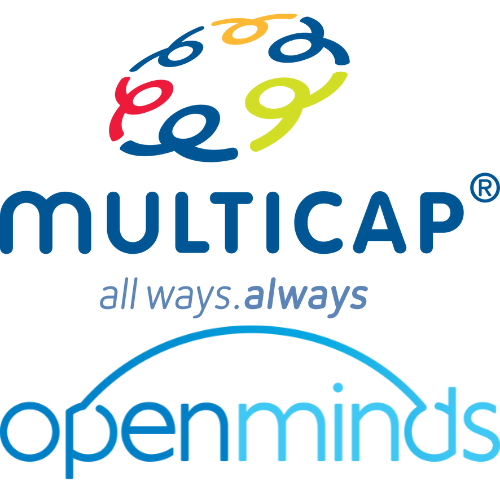
Sunday, 27 July 20252:55 - 4:10 PMTorrens |
Breaking the Norm: A Neuro-Affirming, Constructional Approach to Restrictive Behaviors in Autistic Children
Bridget A. Knights Think Bright TherapyAbstract: This presentation explores the neuro-affirming, constructional approach to addressing restrictive and repetitive behaviors (RRBs) including rigidity in autistic children, focusing on socially valid outcomes (Leadbitter et al., 2021; Nicolson et al., 2020). Traditionally, RRBs are seen as behaviors to be reduced or eliminated; however, this approach challenges that norm by viewing these behaviors as meaningful and redirecting them toward functional, positive outcomes (Allen et al., 2024; Goldiamond, 2002). The presentation highlights how this framework supports autism acceptance while improving communication, self-regulation, and social participation. Three case studies illustrate the application of this approach. In the first case, a 6-year-old child with a history of insistence of sameness and routines was supported to develop his own skill in understanding adaptive social interactions, reducing harm, and engaging more positively with peers. The second and third cases involve a sibling pair, aged 7 and 9, who faced exclusion from school and reduced community engagement who through the constructional approach, were gradually supported to expand their interests resulting in positive and meaningful engagement as a family, within the community and within school. These case studies demonstrate how a neuro-affirming, constructional approach fosters socially valid outcomes by embracing and reshaping behaviors, promoting inclusion, and enhancing overall life skills. Target Audience: The target audience includes therapists, educators, parents, and researchers interested in neuro-affirming approaches to supporting autistic children’s behaviors. Learning Objectives: At the conclusion of this presentation, participants will be able to:
|
Shifting the Goalposts: Embracing Interdependence Over Independence in Complex Behavioural Support
Sarah McCluskey
Billy Cart Behaviour Abstract: This clinical case highlights the importance of rethinking traditional behavioural expectations and focusing on interdependence rather than independence for individuals with complex, multi-system involvement. The case involves a 10-year-old with severe intellectual disability, Autism Spectrum Disorder, Feotal Alcohol Spectrum Disorder and trauma-related disorders. The primary problem was escalating behavioural incidents, including aggression and property damage, that endangered both the individual and the family environment. Research on trauma-informed care and multi-element behaviour support (MEBS) highlights the need for holistic, compassionate interventions in these situations. The participants included the child, their family, and a multi-agency support team. A functional assessment identified key triggers and patterns of dysregulation, leading to the implementation of a personalised behaviour support plan. This plan involved a combination of trauma-informed strategies, significant medication titration, behavioural intervention, and intensive 1:1 support. Results indicated that while the intervention successfully stabilised immediate behavioural concerns, the severity and frequency of incidents persisted, necessitating a shift in the family’s role in the child's care. The intervention highlighted the need for a move toward specialist care in a more structured, professional setting. This case underscores the importance of adjusting expectations and embracing interdependence. The applied implications suggest that when family support becomes insufficient, a structured care environment with specialised supports may be necessary to ensure the safety and well-being of all involved. Target Audience: Behaviour Support Practitioners working with complex behaviour presentations and multi-agency care teams Learning Objectives: At the conclusion of this presentation, participants will be able to
|
Different Training strategies and Home based intervention Children with ASDManna Chowdhury Abstract: This presentation presents a cross-cultural program designed to support children with Autism Spectrum Disorder (ASD) through individualized, home-based strategies implemented in Bangladesh and Canada. The initiative focused on improving social interaction, daily living skills, and managing hyperactivity. Proactive approaches included structured routines, environmental preparation, time management training, and meaningful activity engagement such as grocery shopping tasks. A key aspect of the program was parent empowerment, particularly training mothers as interventionists to promote therapeutic consistency at home. Collaboration between therapists, educators, and caregivers played a vital role in reinforcing skills and ensuring continuity across settings. Training in crisis prevention and safety supported the management of challenging behaviors. Key outcomes highlight the effectiveness of tailored strategies in diverse environments and the long-term benefits of holistic, family-centered approaches. Attendees will gain practical insights into empowering families, adapting strategies across cultures, and building sustainable programs that extend beyond clinic settings. The presentation will include real-life examples, implementation tips, and reflections on lessons learned. Target Audience: Parents and Autism Professionals Learning Objective: Participants will be able to describe the importance of individualized, holistic intervention strategies that engage both professionals and caregivers to effectively address challenging behaviors, social interaction, and ADL skills across diverse settings. |




.png)


